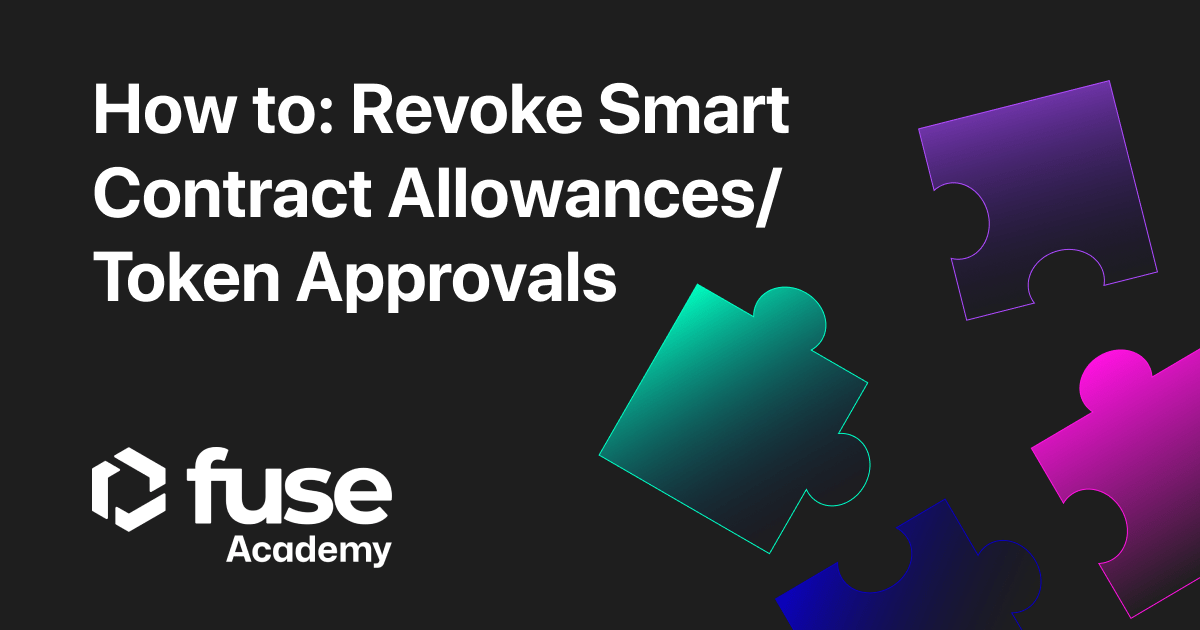Revoking smart contract allowances is crucial for maintaining security, privacy, and control over digital assets. By not revoking the permission, tokens or assets become vulnerable to theft and hacking. Some dApps collect data about transactions or holdings, making it essential to revoke the permission after use to ensure that the dApp no longer has access to the data.
If you’re looking to dive into the world of DeFi, Web3, and smart contracts, it’s essential to understand how to manage your crypto token allowances and approvals. Specifically, knowing how to revoke smart contract allowances and token approvals can help you maintain
While audited DeFi platforms like Pancakeswap are generally safe, new or unaudited platforms pose risks. Malicious developers can use backdoors to control your tokens even after you withdraw them, resulting in significant losses. Additionally, popular DeFi platforms are not immune to hacker attacks, as seen with Bancor. Stay vigilant and take precautions to protect your assets.
Additionally, if permission is not revoked, the smart contract can be targeted by hackers, leading to the potential loss or theft of tokens. By revoking the permission, the scope of potential attacks can be limited, and the tokens can be kept safe.
In this complete guide, we’ll walk you through the steps you need to take to revoke these allowances effectively in the most used wallets, ensuring the safety and security of your assets on the blockchain. So let’s get started and master this essential skill in Web3.
Why should I revoke?
It’s easy to accumulate a long list of token allowances when trying out new dapps, but this can leave you vulnerable to hackers and scams. Regularly checking your token approvals and revoking any you’re unhappy with is an excellent habit to develop to ensure your safety.
Hackers and scammers often exploit vulnerabilities in a smart contract’s code or use rug pull to drain wallets of tokens with unlimited access permissions. To prevent this, MetaMask offers the option to customize token permissions.
To swap tokens, provide liquidity to liquidity pools, stake, or interact with farms. Users are required to allow smart contracts to utilize their assets. Remember, taking precautions to maintain your safety is crucial when dealing with digital assets.
Using Revoke.cash to revoke smart contracts
We recommend revoke.cash to revoke contracts on Fuse and other networks. Please note that Fuse is not affiliated with revoke.cash, and we cannot guarantee the security of third-party tools. However, we believe that revoke.cash is a reputable tool, and we encourage our users to use it as a precautionary measure.
Step 1: Go to Revoke.cash website and Connect your wallet using the tab on the top right-hand side.

Step 2: Choose the network you want to revoke contracts using the drop-down menu on the top right. Select Fuse to revoke contracts on dApps interacted with on Fuse.

Step 3: Scroll down to see all the token allowances after selecting Fuse.
Step 4: We can see that the allowance for spending USDC tokens on Fuse is set at unlimited. Click on revoke.

Step 5: You can change the amount from unlimited to a set figure by clicking the edit button next to the Allowance. Alternatively, you can revoke the contract and remove all permissions.
Step 6: Click revoke, and a MetaMask transaction will appear, click Approve.

Step 7: The transaction is submitted, and within a few seconds, the USDC contract on Fuse will be revoked from your wallet and no longer appear in the list on revoke.cash.
Revoking smart contracts on other blockchains
Repeat these steps on other networks installed in your MetaMask to revoke contracts on other blockchains. There are several other ways to keep track of your existing approvals and easily revoke them across multiple blockchains. Moreover, checking your activity across all the blockchains you utilize, including Fuse, is essential.
- Use a platform such as:
- Revoke (Ethereum mainnet)
- Unrekt (multiple networks)
- approved.zone (Ethereum mainnet)
- Cointool (multiple networks)
- beefy.finance (BSC/BNB Smart Chain)
- EverRevoke (multiple networks)
Since token approvals are conducted on-chain, revoking the approval must also be on-chain. This means you need to pay gas fees for each revocation.
In summary
Protect your assets and ensure their safety by revoking smart contract permissions. Explore The Fuse Academy for more helpful guides and tutorials. Don’t leave your digital assets vulnerable to theft or hacking – learn more about smart contract permission revocation today with the Fuse Academy.
.svg)
.svg)












